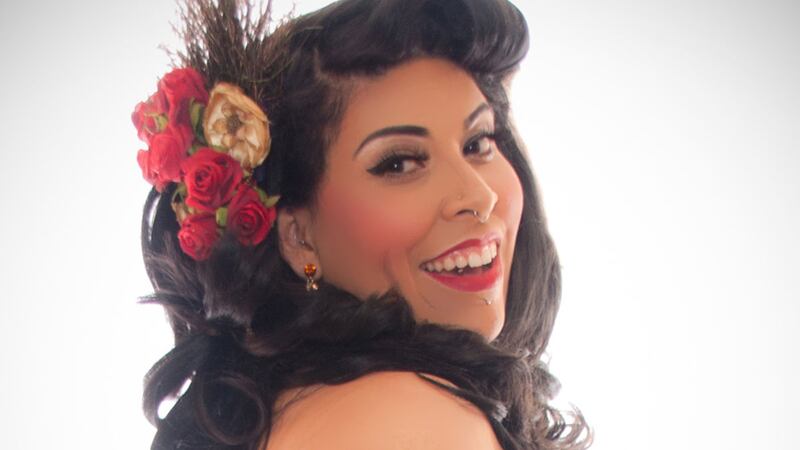For Ruby Rounds, burlesque is much more than just fancy striptease—it’s a breeding ground for radical political movements.
“A lot of what’s prompted me to move in the direction of producing a show is learning more about our hidden history,” she says about the inspiration for her variety revue, De Colores Cabaret. “People of color have always been in burlesque but have been erased.” In early-20th-century America, burlesque shows were segregated. Then, around the ’40s and ’50s, white America took a sudden, generalized fascination in Latin burlesque culture, often to an exploitative degree.
In many ways, Rounds’ concept for De Colores is in direct response to that, by challenging ideas of who wields power in burlesque identity. The cabaret will feature a lineup of all-Latin performers that Rounds single-handedly curated, from international big-name burlesquers Egypt Blaque Knyle and Lola Coquette to local circus arts and drag performers.
De Colores seeks to celebrate the diversity of talents from each performer to the next, but also to demonstrate the skin-color variance among Latin-identifying artists.
“People have an idea of what a Latin person looks like,” Rounds says, “but we span from very, very pale skin to very, very dark skin, and I was thinking about how we can focus on seeing that.”
For Rounds, the representation of more racial, cultural, sexual and gender identities in burlesque is essential to burlesque moving forward—as representation breeds representation, more communities feel burlesque is “for” them.
Rounds’ own early attempts to tune into a queenlike burlesque confidence were hindered by a total lack of classic ’40s burlesque celebrities she could relate to.
“It’s not that they didn’t exist,” says Rounds, whose Chicana identity is the driving force of her burlesque persona, “just that they were hard to find because what we view as ‘burlesque history’ is skewed towards white performers and has often ignored or erased many performers of color.”
What’s more is that in Portland, Rounds “found it kind of difficult being a person of color within a community where a lot of people didn’t ‘see’ color, didn’t ‘see’ race.”
De Colores, she says, “is very much addressing white liberalism. People who don’t see your color don’t see you. They don’t see your race: this core part of you that you can’t take away from your identity.”
The show is undeniably contextualized by the new presidential administration, too. The same week Rounds sent out the De Colores Cabaret press release, the Spanish-speaking congregation at Portland's St. Peter Catholic Church was recovering from recent harassment incidents.
"My show is a group of people who are brown, black, queer, immigrants and children of recent immigrants," says Rounds. She smiles widely as she adds, "This show really is celebrating all the things that others denigrate."
SEE IT: De Colores Cabaret plays the Headwaters Theatre, 55 NE Farragut St., No. 9. 9 pm Friday, March 3. $20-$30. 18+. 